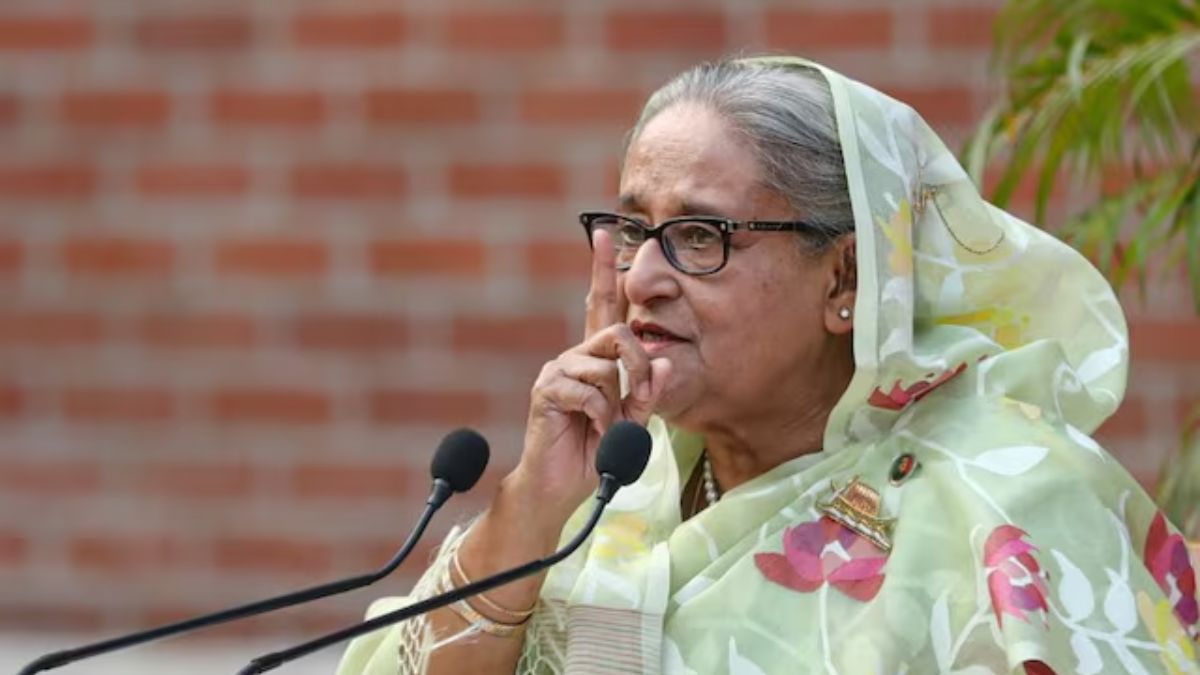“It is our call to you that you should hand her over to the government of Bangladesh in a legal way. The people of this country have given the decision for her trial. Let her face that trial,” Bangladesh’s main Opposition Bangladesh Nationalist Party (BNP) said on Tuesday while seeking the extradition of Sheikh Hasina, the deposed prime minister, from India.
This is not the official position of the caretaker government of Bangladesh led by Nobel laureate Muhammad Yunus. But given that the BNP is practically the leading political outfit in Bangladesh after the ouster of Hasina’s Awami League, which won a controversial parliamentary election in January this year, the Yunus government would be under pressure to make a formal request.
Meanwhile, cases have been piling up against Hasina in Bangladesh’s police records and courts ever since she fled the country on August 5 after a conversation with the Army chief who refused to aid her government in quelling the month-long youth agitation that began over a quota-based hiring system for government jobs but snowballed into a call for her ouster from power over a range of issues including corruption.
As Bangladesh’s politics heats up to the demand for Hasina’s extradition from India, does New Delhi have a say in denying or holding back an official request? This question assumes immense significance given Hasina has been a loyal friend of India during her long premiership in Bangladesh, whose friendly outlook towards India holds strategic importance for New Delhi.
The extradition treaty
The extradition treaty between Bangladesh and India came up as New Delhi’s persistent quest to address insurgency in the Northeast. For decades, insurgent leaders operating in the Northeast and also West Bengal would cross the porous India-Bangladesh border to escape the law. The treaty was first signed in 2013, and was amended in 2016.
Impact Shorts
More ShortsIndia has benefitted from this treaty and so has Bangladesh, which faces challenges from terror groups like Jamaat-ul-Mujahideen Bangladesh (JMB) and whose operatives were found to be hiding in West Bengal and Assam.
India could get top United Liberation Front of Assam (ULFA) leader Anup Chetia extradited from Bangladesh in 2015. India too has extradited a couple of Bangladeshi fugitives through this treaty.
The treaty lists conditions and crimes for extradition. India and Bangladesh are supposed to extradite fugitives “who have been proceeded against” or “who have been charged with or have been found guilty of, or are wanted for” crimes listed in the treaty as “extraditable offence”.
Only crimes carrying a minimum one-year imprisonment can be extraditable offences, including those relating to financial irregularities.
An important aspect in the operation of the India-Bangladesh extradition treaty is that the principle of dual criminality must be satisfied for an offence to be extraditable. This means that the offence should be punishable in both countries.
Article 7 of the treaty deals with what is an extraditable offence and how the authorities in the two countries would respond to a request for extradition.
But there are exceptions
The India-Bangladesh extradition treaty, however, can’t be enforced in cases that are “political in nature”. Article 6 of the treaty has a list of political offences as exceptions.
Other exceptions are mentioned in Article 8 of the treaty — allowing both India and Bangladesh to refuse requests under certain circumstances.
An extradition request can be denied if it has “not been made in good faith” and is not “in the interests of justice”.
Article 8 says a request for extradition can be denied of the person of interest can satisfy the requested country about
“the trivial nature of the offence of which he is accused or was convicted,” or,
“the passage of time since he is alleged to have committed it or to have become unlawfully at large,” or,
“the accusation against him not having been made in good faith in the interests of justice,”
“the offence of which he is accused or convicted is a military offence which is not also an offence under the general criminal law”.
Also, if a person is facing a criminal case or convicted of a crime in the requested country, the request for extradition can be denied.
So, can India deny a request for Hasina’s extradition?
Among the charges levelled against Hasina in Bangladesh’s police and court files include those of murder, culpable homicide, assault, causing an explosion, the making or possession of an explosive substance or weapons by a person intending to endanger life; the use of a firearm with intent to resist or prevent arrest; damaging property with intent to endanger life; kidnapping or taking of a hostage; incitement to murder; and offences related to terrorism.
These offences are not covered under exceptions among offences of political nature. So, despite being a political figure, Hasina’s case may not be covered under this exception. Also, these are neither trivial charges nor such time has passed as to invoke Article 8.
However, the same article also talks about a provision for denying the extradition request by saying that the charges levelled against Hasina are “in good faith” and not “in the interests of justice”.
But this carries a risk of hampering India-Bangladesh ties under a new non-Awami League government when the country capping the Bay of Bengal is fast becoming a playground for China and the US actors. India may opt for a diplomatic route to discourage the caretaker Yunus government from making a formal request for the extradition of Sheikh Hasina.


)

)
)
)
)
)
)
)
)



